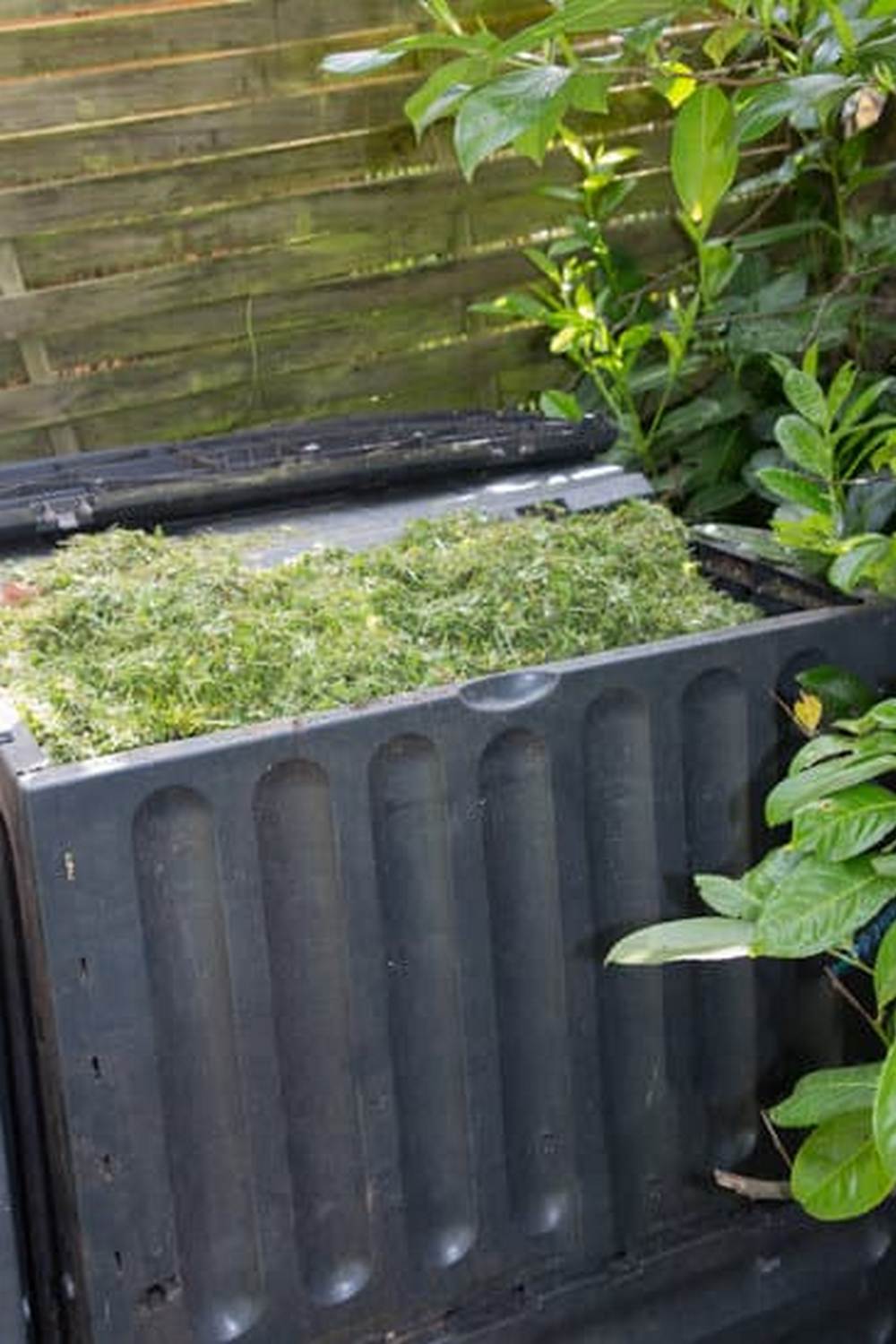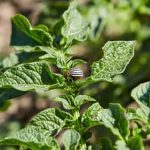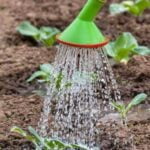Spectracide Granules are a popular choice for gardeners looking to protect their plants from pests and diseases. However, many may wonder: is Spectracide Granules safe for vegetable gardens? These granules contain specific ingredients that can effectively combat common garden nuisances, but it is crucial to understand the potential risks involved with their use in edible plant settings.
Spectracide Granules typically contain active ingredients such as bifenthrin, which is known for its effectiveness against a wide range of insects. While this ingredient can provide effective pest control, it is essential to consider its impact on the health of your vegetable garden. Understanding the ingredients present in Spectracide Granules is key to making an informed decision about whether or not they are suitable for your edible plants.
Despite its effectiveness, using Spectracide Granules in vegetable gardens may come with potential risks. It is important to be aware of any harmful effects these granules may have on beneficial insects, pollinators, and even human health through residue on produce. As with any chemical product, taking necessary safety precautions when applying Spectracide Granules in vegetable gardens is crucial to minimize any adverse impacts on the environment and personal well-being.
Understanding the Ingredients of Spectracide Granules
What Are the Main Ingredients in Spectracide Granules?
Spectracide Granules contain several active ingredients, including gamma-cyhalothrin, a powerful synthetic pyrethroid insecticide. This chemical targets a wide range of pests such as ants, fleas, ticks, and other insects that can harm vegetable gardens. Additionally, Spectracide Granules may also contain inert ingredients to help with spreading and adhesion to plants.
How Do These Ingredients Affect Vegetable Gardens?
While gamma-cyhalothrin is effective at controlling pests, it is important to note that this chemical is not selective in its targets and may harm beneficial insects as well. This can disrupt the balance of the ecosystem in your vegetable garden and potentially lead to collateral damage to pollinators like bees and butterflies. Inert ingredients in Spectracide Granules can also have unintended consequences on the soil health and plant growth if not used carefully.
Is Spectracide Granules Safe for Vegetable Gardens?
The use of Spectracide Granules in vegetable gardens raises concerns about the safety of edible crops that are intended for human consumption. While these granules can effectively control pests, there is a risk of chemical residue remaining on fruits and vegetables after application.
It is essential to follow proper application guidelines and adhere to safety precautions to minimize any potential risks to your health and the environment. Consider exploring alternative pest control methods that are safer for use in vegetable gardens to protect both your produce and the ecosystem.
Potential Risks of Using Spectracide Granules in Vegetable Gardens
Spectracide Granules are a popular choice for controlling pests in gardens, but it is essential to understand the potential risks associated with their use in vegetable gardens. One of the main concerns is that these granules contain chemicals that may be harmful if not used properly. The active ingredient in many Spectracide products is known as Bifenthrin, which is a synthetic pyrethroid insecticide.
When using Spectracide Granules in vegetable gardens, there is a risk of these chemicals leaching into the soil and ultimately contaminating the produce grown. This can pose a health risk to consumers who eat fruits and vegetables treated with this product. Additionally, if not applied correctly following the instructions provided by the manufacturer, there is a possibility of overexposure to these chemicals for gardeners working with them.
To mitigate the potential risks of using Spectracide Granules in vegetable gardens, it is crucial to follow safety precautions such as wearing protective gear like gloves, long sleeves, and a mask during application. It is also recommended to apply the granules on calm days to prevent any drift that could affect unintended areas or organisms. Furthermore, choosing alternative pest control methods that are less harmful to the environment and human health is encouraged when possible.
| Risks | Recommendations |
|---|---|
| Chemical contamination of produce | Follow recommended application guidelines |
| Overexposure risks for gardeners | Use protective gear and proper application techniques |
| Possible environmental impact | Consider eco-friendly pest control alternatives |
Safety Precautions for Using Spectracide Granules in Vegetable Gardens
Spectracide Granules, like many other pesticides and insecticides, contain chemicals that may pose risks to vegetable gardens if not used properly. To ensure the safety of your garden and the produce it yields, it is essential to follow specific safety precautions when using Spectracide Granules in vegetable gardens.
Here are some safety precautions to consider when using Spectracide Granules in your vegetable garden:
- Read and follow the instructions on the label carefully before applying Spectracide Granules. This will help you understand how to use the product safely and effectively.
- Wear appropriate protective gear, such as gloves, a mask, and eye protection, when handling and applying Spectracide Granules. This can help minimize direct contact with the chemicals.
- Avoid applying Spectracide Granules on windy days to prevent the chemicals from drifting onto unintended areas of your garden or neighboring properties.
Taking these safety precautions can help minimize potential risks associated with using Spectracide Granules in vegetable gardens. Remember that protecting yourself and your garden should always be a top priority.
It is important to note that while Spectracide Granules can be effective in controlling pests in vegetable gardens, some gardeners may prefer alternative methods that are considered more natural or organic. Before using any pesticide or insecticide in your garden, consider exploring alternative options that may be safer for both your health and the environment.
Alternatives to Spectracide Granules for Vegetable Gardens
When it comes to caring for your vegetable garden, using products that are safe for your plants and the environment is essential. While Spectracide Granules may be effective in controlling pests, some gardeners may have concerns about its impact on their vegetable crops. If you are looking for alternative options to Spectracide Granules for your vegetable garden, consider the following alternatives:
- Neem Oil: Neem oil is a natural pesticide that can help control a wide range of pests in your vegetable garden. It is safe to use on most vegetables and does not harm beneficial insects.
- Diatomaceous Earth: Diatomaceous earth is a natural product made from fossilized algae. It works by dehydrating insects that come into contact with it, making it an effective pest control option for your vegetable garden.
- Natural predators: Introducing beneficial insects like ladybugs, lacewings, or praying mantises to your garden can help control pest populations without the need for harmful chemicals.
These alternatives offer effective pest control options while minimizing the potential risks associated with chemical-based products like Spectracide Granules. By choosing safer alternatives, you can protect your vegetable crops and promote a healthier ecosystem in your garden.
Remember to always read product labels carefully and follow application instructions to ensure the safety of your plants and the environment. While Spectracide Granules may be a convenient option for pest control, exploring natural alternatives can help maintain a balanced and thriving vegetable garden without compromising safety.
Tips for Applying Spectracide Granules in Vegetable Gardens
Proper Application Techniques
When using Spectracide Granules in your vegetable garden, it is essential to follow the instructions on the product label carefully. One key tip is to apply the granules evenly across the area to be treated, ensuring that all plants receive an equal amount of the product. It is also crucial to avoid over-application, as this can lead to harmful buildup of chemicals in the soil.
Timing and Frequency
Another important tip for applying Spectracide Granules in vegetable gardens is to consider the timing and frequency of application. It is recommended to apply the granules when the weather is calm, with no rain expected for at least 24 hours. Additionally, it is best to apply the product early in the morning or late in the evening when temperatures are cooler to minimize stress on plants.
Protective Gear and Storage
To ensure safe application of Spectracide Granules in your vegetable garden, it is advisable to wear protective gear such as gloves, long sleeves, and a mask while handling the product. After use, store the granules in a cool, dry place away from children and pets. Proper storage will help maintain the effectiveness of the product while preventing any accidental exposure.
Overall, following these tips for applying Spectracide Granules in vegetable gardens can help maximize effectiveness while minimizing potential risks to both plants and humans. Remember that proper application techniques, timing and frequency considerations, as well as protective gear and storage practices are key factors in ensuring a safe and successful experience with this product.
Real-Life Experiences From Gardeners Who Have Used Spectracide Granules
Real-life experiences from gardeners who have used Spectracide Granules can provide valuable insights into the effectiveness and safety of this product in vegetable gardens. Many gardeners have reported positive outcomes when using Spectracide Granules to control pests and protect their crops. One common feedback is that the granules are easy to apply and provide long-lasting protection against a variety of insects that can damage vegetables.
One gardener shared their experience of using Spectracide Granules on their tomato plants, which were being attacked by aphids. After applying the granules as directed on the packaging, they noticed a significant reduction in aphid populations within a few days. The tomato plants began to thrive again, producing healthy fruits without any further pest damage. This firsthand account highlights the effectiveness of Spectracide Granules in managing insect infestations in vegetable gardens.
Another gardener mentioned that they were initially concerned about whether Spectracide Granules are safe for vegetable gardens due to the presence of certain chemicals in the product. However, after researching and following safety precautions during application, they did not observe any negative effects on their vegetable plants or soil. This testimonial emphasizes the importance of understanding and adhering to safety guidelines when using pesticides in vegetable gardens.
| Aspect | Experience |
|---|---|
| Effectiveness | Spectracide Granules effectively controlled aphids on tomato plants |
| Safety | No negative effects observed when used as directed |
Conclusion
In conclusion, when considering whether Spectracide Granules are safe for use in vegetable gardens, it is essential to weigh the potential risks against the benefits. While Spectracide Granules can effectively control pests and provide protection for plants, it is crucial to understand the ingredients within the product and follow safety precautions during application.
Understanding the active ingredients in Spectracide Granules, such as bifenthrin, helps gardeners make informed decisions about using this product in their vegetable gardens. It is important to note that some of these chemicals can be harmful if not used properly or if ingested by humans or pets. Therefore, following safety precautions, such as wearing protective gear during application and keeping children and animals away from treated areas, is crucial.
Ultimately, while Spectracide Granules can be effective in pest control for vegetable gardens, there are alternative methods and products available that may pose lower risks to human health and the environment. Gardeners are encouraged to explore organic and natural pest control solutions as well as integrated pest management practices to maintain a healthy and thriving garden without compromising safety.
Considering all factors, careful consideration should be given before using Spectracide Granules in vegetable gardens to ensure the well-being of both people and plants.
Frequently Asked Questions
Can I Use Spectracide in My Vegetable Garden?
Spectracide products can be used in vegetable gardens, but it is important to read the label carefully and follow all instructions. Make sure to check if it is safe for use on edible crops and follow any waiting periods before harvesting.
Does Spectracide Granules Need to Be Watered In?
Spectracide granules typically need to be watered after application to activate the ingredients and help them penetrate into the soil. This watering step is crucial for the product to work effectively in targeting pests in your garden or lawn.
How Long Does It Take Spectracide Triazicide Granules to Work?
The time it takes for Spectracide Triazicide granules to work can vary depending on factors such as the type of pests present, environmental conditions, and application method. In general, you may start seeing results within a few days to a couple of weeks after application, but it’s important to follow the recommended treatment schedule for best results.

If you’re looking to get into vegetable gardening, or are just looking for some tips on how to make your current garden better, then you’ve come to the right place! My name is Ethel and I have been gardening for years. In this blog, I’m going to share with you some of my best tips on how to create a successful vegetable garden.





